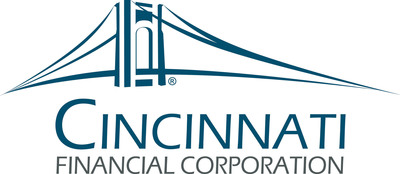The Cincinnati Insurance Company Chief Claims Officer Announces Retirement
Cincinnati Financial Corporation (Nasdaq: CINF) announced the retirement of Martin J. Mullen, chief claims officer, at the end of the year. Mullen has been with the company since 1977 and led the claims teams since 2008, ensuring high-quality claims service. Marc J. Schambow will take over his responsibilities, bringing over 30 years of claims experience. The transition is expected to be smooth as Mullen and Schambow will work together before Mullen's departure.
- Smooth leadership transition planned with Marc J. Schambow taking over.
- Mullen recognized for excellent claims service, contributing to high satisfaction among agents and policyholders.
- Marc J. Schambow's extensive experience may enhance the claims process further.
- None.
Insights
Analyzing...
CINCINNATI, Sept. 9, 2020 /PRNewswire/ -- Cincinnati Financial Corporation (Nasdaq: CINF) announced that Martin J. Mullen, CPCU, chief claims officer for its lead subsidiary, The Cincinnati Insurance Company, will retire at year-end.
Mullen joined the company in 1977 as a field claims representative serving agents and policyholders in Southwest Ohio. After more than a decade in the field, he joined the company's headquarters claims management team and advanced through its ranks. In 2008, Mullen took the reins for the now 357-member headquarters claims team and the 958-member field claims team, carefully nurturing the company's hallmark of excellent claims service.
Marc J. Schambow, CPCU, AIM, ASLI, vice president, Field Claims, will assume executive responsibility for the headquarters and field claims teams upon Mullen's retirement. Schambow is a seasoned professional with more than 30 years of Cincinnati claims experience. After serving agents and policyholders in Wisconsin, he moved to Cincinnati as a casualty claims supervisor in 1997, becoming the first claims manager for The Cincinnati Specialty Underwriters Insurance Company in 2007 and transitioning to lead the field claims team in 2014.
"Marty is a thoughtful and steady leader," commented Steven J. Johnston, chairman, president and chief executive officer. "He has a sterling reputation with agents and associates built through more than 40 years of service to our company. His talents are evident in the consistently high marks we receive from agents and policyholders about our claims service."
Johnston continued: "Marty and Marc will work together over the next few months to ensure a smooth transition. Marc is an experienced member of the claims leadership team and a strong advocate for our field model. He also understands how technology can enhance the claims process, increasing efficiencies and claims satisfaction for our agents and their clients."
About Cincinnati Financial
Cincinnati Financial Corporation offers primarily business, home and auto insurance, our main business, through The Cincinnati Insurance Company and its two standard market property casualty companies. The same local independent insurance agencies that market those policies may offer products of our other subsidiaries, including life insurance, fixed annuities and surplus lines property and casualty insurance. For additional information about the company, please visit cinfin.com.
Mailing Address: | Street Address: |
P.O. Box 145496 | 6200 South Gilmore Road |
Cincinnati, Ohio 45250-5496 | Fairfield, Ohio 45014-5141 |
Safe Harbor Statement
This is our "Safe Harbor" statement under the Private Securities Litigation Reform Act of 1995. Our business is subject to certain risks and uncertainties that may cause actual results to differ materially from those suggested by the forward-looking statements in this report. Some of those risks and uncertainties are discussed in our 2019 Annual Report on Form 10-K, Item 1A, Risk Factors, Page 35.
Factors that could cause or contribute to such differences include, but are not limited to:
- Effects of the COVID-19 pandemic that could affect results for reasons such as:
- Securities market disruption or volatility and related effects such as decreased economic activity that affect the company's investment portfolio and book value
- An unusually high level of claims in our insurance or reinsurance operations that increase litigation-related expenses
- An unusually high level of insurance losses, including risk of legislation or court decisions extending business interruption insurance to require coverage when there was no direct physical damage or loss to property
- Decreased premium revenue and cash flow from disruption to our distribution channel of independent agents, consumer self-isolation, travel limitations, business restrictions and decreased economic activity
- Inability of our workforce, agencies or vendors to perform necessary business functions
- Unusually high levels of catastrophe losses due to risk concentrations, changes in weather patterns, environmental events, terrorism incidents or other causes
- Increased frequency and/or severity of claims or development of claims that are unforeseen at the time of policy issuance
- Inadequate estimates, assumptions or reliance on third-party data used for critical accounting estimates
- Declines in overall stock market values negatively affecting the company's equity portfolio and book value
- Prolonged low interest rate environment or other factors that limit the company's ability to generate growth in investment income or interest rate fluctuations that result in declining values of fixed-maturity investments, including declines in accounts in which we hold bank-owned life insurance contract assets
- Domestic and global events resulting in capital market or credit market uncertainty, followed by prolonged periods of economic instability or recession, that lead to:
- Significant or prolonged decline in the fair value of a particular security or group of securities and impairment of the asset(s)
- Significant decline in investment income due to reduced or eliminated dividend payouts from a particular security or group of securities
- Significant rise in losses from surety and director and officer policies written for financial institutions or other insured entities
- Our inability to integrate Cincinnati Global and its subsidiaries into our on-going operations, or disruptions to our on-going operations due to such integration
- Recession or other economic conditions resulting in lower demand for insurance products or increased payment delinquencies
- Difficulties with technology or data security breaches, including cyberattacks, that could negatively affect our ability to conduct business; disrupt our relationships with agents, policyholders and others; cause reputational damage, mitigation expenses and data loss and expose us to liability under federal and state laws
- Disruption of the insurance market caused by technology innovations such as driverless cars that could decrease consumer demand for insurance products
- Delays, inadequate data developed internally or from third parties, or performance inadequacies from ongoing development and implementation of underwriting and pricing methods, including telematics and other usage-based insurance methods, or technology projects and enhancements expected to increase our pricing accuracy, underwriting profit and competitiveness
- Increased competition that could result in a significant reduction in the company's premium volume
- Changing consumer insurance-buying habits and consolidation of independent insurance agencies that could alter our competitive advantages
- Inability to obtain adequate ceded reinsurance on acceptable terms, amount of reinsurance coverage purchased, financial strength of reinsurers and the potential for nonpayment or delay in payment by reinsurers
- Inability to defer policy acquisition costs for any business segment if pricing and loss trends would lead management to conclude that segment could not achieve sustainable profitability
- Inability of our subsidiaries to pay dividends consistent with current or past levels
- Events or conditions that could weaken or harm the company's relationships with its independent agencies and hamper opportunities to add new agencies, resulting in limitations on the company's opportunities for growth, such as:
- Downgrades of the company's financial strength ratings
- Concerns that doing business with the company is too difficult
- Perceptions that the company's level of service, particularly claims service, is no longer a distinguishing characteristic in the marketplace
- Inability or unwillingness to nimbly develop and introduce coverage product updates and innovations that our competitors offer and consumers expect to find in the marketplace
- Actions of insurance departments, state attorneys general or other regulatory agencies, including a change to a federal system of regulation from a state-based system, that:
- Impose new obligations on us that increase our expenses or change the assumptions underlying our critical accounting estimates
- Place the insurance industry under greater regulatory scrutiny or result in new statutes, rules and regulations
- Restrict our ability to exit or reduce writings of unprofitable coverages or lines of business
- Add assessments for guaranty funds, other insurance–related assessments or mandatory reinsurance arrangements; or that impair our ability to recover such assessments through future surcharges or other rate changes
- Increase our provision for federal income taxes due to changes in tax law
- Increase our other expenses
- Limit our ability to set fair, adequate and reasonable rates
- Place us at a disadvantage in the marketplace
- Restrict our ability to execute our business model, including the way we compensate agents
- Adverse outcomes from litigation or administrative proceedings
- Events or actions, including unauthorized intentional circumvention of controls, that reduce the company's future ability to maintain effective internal control over financial reporting under the Sarbanes-Oxley Act of 2002
- Unforeseen departure of certain executive officers or other key employees due to retirement, health or other causes that could interrupt progress toward important strategic goals or diminish the effectiveness of certain longstanding relationships with insurance agents and others
- Events, such as an epidemic, natural catastrophe or terrorism, that could hamper our ability to assemble our workforce at our headquarters location
Further, the company's insurance businesses are subject to the effects of changing social, global, economic and regulatory environments. Public and regulatory initiatives have included efforts to adversely influence and restrict premium rates, restrict the ability to cancel policies, impose underwriting standards and expand overall regulation. The company also is subject to public and regulatory initiatives that can affect the market value for its common stock, such as measures affecting corporate financial reporting and governance. The ultimate changes and eventual effects, if any, of these initiatives are uncertain.
![]() View original content to download multimedia:http://www.prnewswire.com/news-releases/the-cincinnati-insurance-company-chief-claims-officer-announces-retirement-301126417.html
View original content to download multimedia:http://www.prnewswire.com/news-releases/the-cincinnati-insurance-company-chief-claims-officer-announces-retirement-301126417.html
SOURCE Cincinnati Financial Corporation








